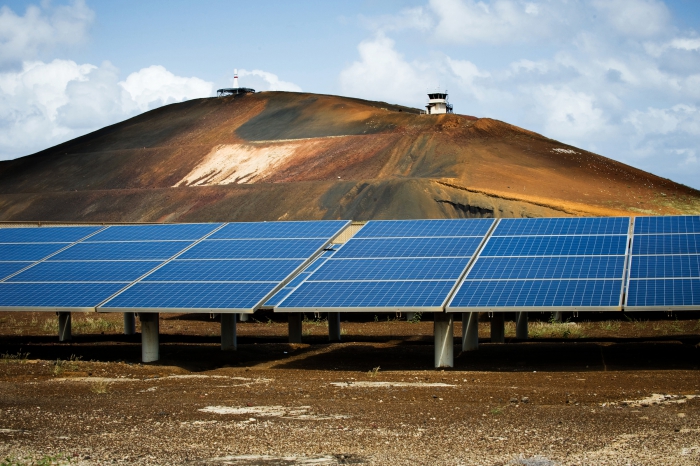Powering Africa's Future: The Rise of Solar Home Systems
Solar home systems are poised to revolutionize energy access for millions in Asia and Sub-Saharan Africa. Between 2017 and 2022, these systems are projected to bring basic electricity services to an additional 70 million people. Concurrently, off-grid capacity in the region is expected to nearly triple, reaching over 3,000 MW by 2022. In Africa, solar system sales are anticipated to grow dramatically, from 3.5 million units in 2014 to 17 million units by 2030. A key driver of this growth is the innovative pay-as-you-go (PAYG) solar system model, which leverages Africa's leadership in mobile money technology.
The PAYG Model: Democratizing Solar Access
The PAYG model enables companies to offer solar systems to customers through installment payments rather than requiring a large upfront sum. Using mobile money platforms like M-Pesa in Kenya, customers can make daily, weekly, or monthly payments via their mobile phones. This flexibility allows even low-income Africans, often residing in rural, off-grid areas, to afford and access solar power. Typically, customers gain instant access to the solar systems after their first payment, and ownership is transferred to them after a specified number of installments.
The Role of Mobile Money
Africa is a global leader in mobile money, with half of all mobile money accounts worldwide held on the continent as of 2016. Over 100 million Africans had a mobile money account that year, a figure that continues to grow. Mobile money connects the unbanked to the financial system and the digital economy, with half of these account holders lacking any other type of account.
Mobile money platforms streamline the PAYG solar model, automating payments to reduce defaults. The IFC/World Bank Lighting Global program found that 15% of customers in one PAYG model paid off their purchase in less than 30 days, despite having 70 days available. Mobile-based payments also facilitate communication via SMS, a crucial feature in Africa where only 35% of the population has internet access. Moreover, GSM technology embedded in some solar systems allows companies to remotely lock and unlock them, enhancing payment security.
Leading the Charge: Key PAYG Solar Companies
M-KOPA: A pioneer in the PAYG solar market, M-Kopa has connected 600,000 homes to solar power as of January 2018. Founded in 2011, the company has raised $162 million and uses M-Pesa for payments. Customers pay $35 upfront and 45 cents daily for a year, gaining ownership of a solar kit that includes a panel, LED bulbs, a flashlight, a radio, and phone charging adaptors.
PEG Africa: Operating in Ghana and Ivory Coast, PEG Africa targets off-grid customers earning $5 to $10 daily. Customers pay an upfront fee of $30 to $35 and make daily payments using platforms like Tigo Cash for a year. The company has raised $22.5 million and offers additional products like cookstoves and solar-powered TVs upon full payment of the solar kit.
ZOLA Electric: Formerly Off-Grid Electric, ZOLA Electric serves Tanzania with a PAYG model that includes a $6 installation fee and monthly payments of $5 to $10. Founded in 2012, the company integrates mobile money payments through M-Pesa and Airtel Tanzania.
Lumos Global: This Israeli-founded company operates in West Africa, partnering with MTN Nigeria to enable customers to make payments via mobile phone credit. After an initial commitment fee and five years of payments, customers own the solar system.
Azuri Technologies: Active in 11 Sub-Saharan countries, Azuri Technologies had distributed 28,000 solar systems by 2017. Customers pay a small installation fee and use scratch cards or mobile money for top-ups. After 18 months, the system becomes theirs. In Tanzania, payments can be made using Tigo Pesa.
Conclusion
The PAYG model, powered by mobile money, is transforming the energy landscape in Africa. It offers an unprecedented opportunity to bring electricity to 490 million Africans living off-grid. For many, PAYG solar systems represent their first interaction with mobile money, helping them build credit histories and access further financial services. As mobile money continues to expand, PAYG solar companies are well-positioned to extend their reach, illuminating the path to a brighter, more connected future for rural Africa.







Post a Comment